
Periodontitis is one of the most common oral diseases today, mainly due to improper oral hygiene leading to the formation of dental plaque. In the early stages when the disease has not yet affected your health, you can try some ways to treat periodontitis at home to immediately reduce pain and feel more comfortable.
1. What is periodontitis?
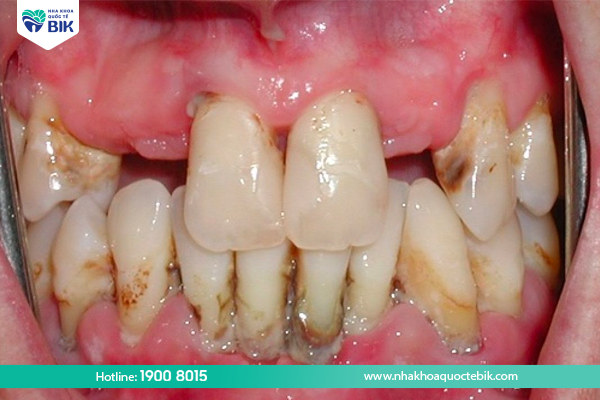
Periodontitis is a long-term infection that gradually causes inflammation of the gums and teeth. In fact, periodontitis is a more severe progression of common gingivitis but is not treated properly.
Initially, gingivitis is just red, itchy or slightly painful gums with an unpleasant odor in the breath. If not treated promptly, it will lead to periodontitis and the places where bacteria invade will begin to appear periodontal pockets, causing the gums to recede and the tooth roots to be exposed, making the teeth look longer. The infection spreads more and more, causing damage to the gum tissue and jawbone, loosening the teeth and even tooth loss.
2. Causes of periodontitis
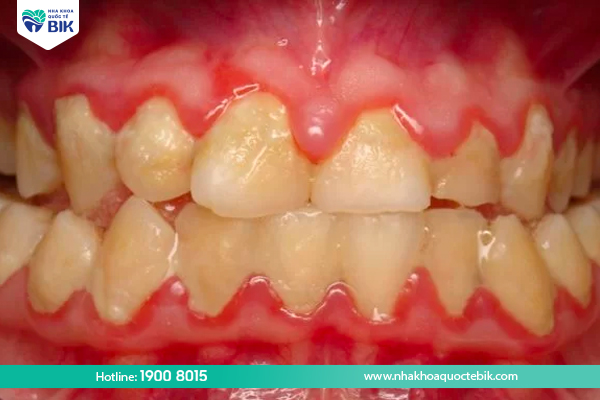
The main cause of periodontitis is the attack of bacteria found in dental plaque. These plaques are formed due to poor oral hygiene, causing food residue to turn into tartar and accumulate more and more if not treated. Dental plaque that exists between the tooth root and gum is an extremely favorable environment for bacteria to grow, develop and attack, causing periodontitis.
In addition, other causes of periodontitis are the effects of factors such as:
– Hormonal changes in pregnant women increase gum sensitivity.
– Certain diseases such as cancer, immunodeficiency, diabetes, etc.
– Certain drugs reduce saliva flow, causing the oral cavity to dry out and not protect the gums from bacterial attacks.
3. How to treat periodontitis at home
You can apply some of the following simple ways to effectively treat periodontitis at home:
How to treat periodontitis at home with ginger
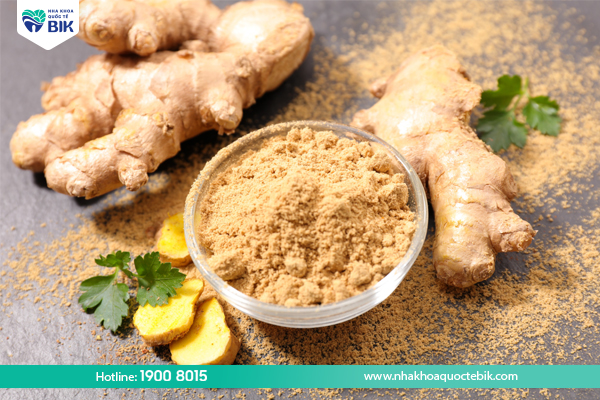
– Take fresh ginger, wash it, slice it and boil it with water.
– Use this mixture to rinse your mouth right after each meal because ginger has high antiseptic and anti-inflammatory properties, limiting the growth of bacteria.
– Note: Make sure to boil the ginger water as strong as tea.
– Do not use continuously for 7 days because it can cause body heat.
Mixture of lemon and salt
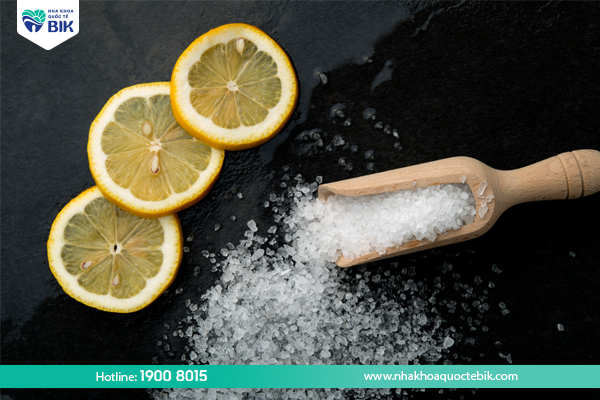
Both lemon and salt are famous for their excellent antibacterial properties, so they are considered very effective methods for treating oral diseases such as periodontitis and bad breath.
– Mix lemon juice with salt to get a thick mixture.
– Apply this mixture directly to the painful tooth root area due to periodontitis.
– Do this regularly for 2-3 days for best results.
Using baking soda
Baking soda neutralizes acid in the oral cavity, effectively preventing bacteria from attacking teeth and gums, causing periodontitis. In addition, teeth will also be cleaned, giving you bright white teeth.
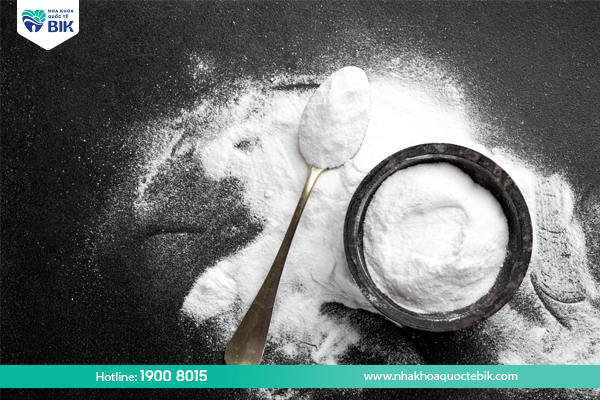
– Dissolve baking soda with clean water to make a thick mixture.
– Use this mixture to brush your teeth like toothpaste every day.
– Rinse your mouth thoroughly with clean water.
– Note that you should not use too much because it can cause tooth enamel erosion.
Using the leaves of the golden comb tree
Not only does it treat digestive diseases, the golden comb tree is also effective in treating oral and periodontal diseases:
– Choose a 1-year-old golden comb tree, wash it, chop the leaves and let them wilt.
– Use the dried leaves soaked in white wine for about 20 days.
– Use the resulting mixture to rinse your mouth thoroughly twice a day, morning and night.
– Persistently do this until you get certain results.
Using clove essential oil
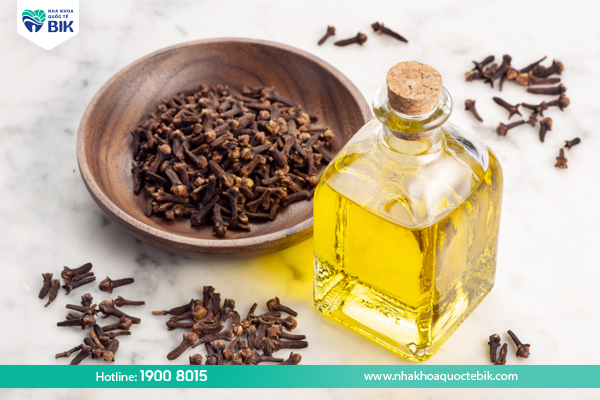
Clove essential oil has high antibacterial properties, preventing infections that lead to periodontitis.
– Use a cotton swab to gently dab the essential oil.
– Apply evenly around the infected gum area.
– Keep the essential oil in the mouth for a few minutes and then rinse with clean water.
– Do it twice a day.
4. Treatment of periodontitis at the dentist

Home remedies for periodontal disease are only effective in mild cases of infection that have not affected the tooth root. If you feel that the symptoms of the disease do not improve after a period of applying the above methods, you should go to the dentist for examination and the best treatment with specialized measures:
4.1. Non-surgical treatment
The doctor can treat periodontal disease in the following ways:
– Scaling and root treatment.
– Correcting or replacing fillings combined with cosmetic restorations.
– Having measures to fix loose teeth.
– If the tooth cannot be saved, the doctor will evaluate each specific case and prescribe tooth extraction,
– Using antiseptics and anti-inflammatory drugs.
Note that self-medication with anti-inflammatory drugs and antibiotics can help the abscess heal temporarily, but the disease does not end but progresses to become chronic, sometimes with acute attacks and then recurs periodically and becomes more serious.
4.2. Surgical treatment
Surgical treatment will be applied when conventional treatments have been performed but are ineffective. The doctor will choose one of the following methods:
– Removing the periodontal pocket: This method will help reduce the depth of the periodontal pocket, thereby making cleaning and removing plaque easier.
– Regeneration: If the periodontal pocket is deep and has too many bacteria, it will further destroy the bone and periodontal tissue, and the tooth will even become loose at a serious level. After surgery, the bone and periodontal tissue will be regenerated.
– Soft tissue grafting: This method is applied in cases where the tooth root is exposed due to gum recession. Surgery will help restore and stop gum recession that destroys gum tissue as well as the tissues around the teeth.
So with mild periodontitis that has not had much effect, you can try applying home remedies for periodontitis to feel more comfortable. However, if the condition does not improve, you should not use drugs on your own but should see a doctor for examination and advice on implementing specialized treatment measures to effectively overcome periodontitis.


















